Maybe Moby…?
As I mentioned in my Selection of Richards (my Dick Picks, if you will), Moby Dick has been breaching frequently in my reading lately. Or maybe always and I’m just now noticing his mammoth presence. I’m starting to wonder if maybe it’s a sign that I need to read Moby Dick.
Instead of reading Moby Dick, I opted to read Nathaniel Philbrick’s Why Read Moby-Dick? I know about John Hancock’s big butt from Philbrick. I assumed he’d have something interesting to say about Moby Dick.
A few sentences that make me both want to read it and/or not so much (or at least not yet):
“This means that whenever a new crisis grips this country, Moby-Dick becomes newly important.” (Philbrick)
“The book is so encyclopedic and detailed that space aliens could use it to re-create the whale fishery as it once existed on the planet Earth in the middle off the nineteenth century.” (Philbrick)
“Better to sleep with a sober cannibal than a drunken Christian.” (Ishmael)
A few things that popped up in Why Read Moby-Dick?
Melville idolized Nathanial Hawthorne
They met when Melville was almost done with the first draft, which gives me an in to share that Hawthorne was friends with Franklin Pierce (they were college roommates).
Pierce was the one who found him dead! (Hawthorne also came for Jane Pierce’s funeral and then again to spend time with Pierce while he — Hawthorne — was dying. So it’s not a huge surprise that Pierce found him dead, I guess. But I still found it kind of wild!)
Franklin Pierce: The American Presidents Series: The 14th President, 1853-1857, by Michael F. Holt
Washington Irving is mentioned
Did you know he used to live at Lindenwald, which became Martin Van Buren’s home?
Edgar Allan Poe came up, too
… in a sentence that started “Before his death in 1849, Edgar Allan Poe…”, which cues me up to share that he died of tuberculosis and that I just wrote a blog that includes both Lindenwald and Poe. Like, yesterday!
The Fugitive Slave Law ties in
Melville’s father-in-law, Judge Lemuel, was in the mix (much to his disgust). He hated slavery. He loved laws. It was his job to uphold the laws. He returned an enslaved man who’d made it to Boston, resulting in riots and chaos, etc.
The Fugitive Slave Laws were a huge threat to the 150,000 free Blacks in the north. Both personally/directly (the possibility of capture) and in more indirect ways (which obviously also had an impact personally). It affected their interactions with the community. White people were less likely to hire Black people out of fear.
Years ago I made this infuriating flow chart.
Times Moby Dick popped up in my reading
Pierce was a political Jonah
“The only certainty appears to be that Pierce will be thrown overboard at once, as a political Jonah, and the south is not so fishy as to attempt to swallow him,” declared the New York Times.
I thought this was my very first Moby Dick-related doodle. Maybe it is. Father Mapple gave a sermon about Jonah. Timing-wise, it could be. (Moby Dick came out in 1851; Pierce was president until 1857). Or maybe it’s just a biblical reference.
Franklin Pierce: The American Presidents Series: The 14th President, 1853-1857, by Michael F. Holt
Melville and Moby
Both the doodle of Herman at the top of this post and Moby Dick below both showed up in The Age of Acquiescence.
Valentine Starbuck was a real guy
Read more about him in my compendium of funny names.
Unfamiliar Fishes, by Sarah Vowell
Not yet
As Philbrick says: “Coming to a great book on your own after having accumulated essential life experience can make all the difference.” I completely agree. And I don’t think I’ve accumulated the requisite essential life experience.
Yet.
(Even though yesterday I saw a gorgeous copy on sale at my favorite book store. Still not ready. Yet.)
Other posts that mention Moby Dick
I didn’t always doodle him when he showed up, but he and/or Herman Melville are mentioned in these posts:



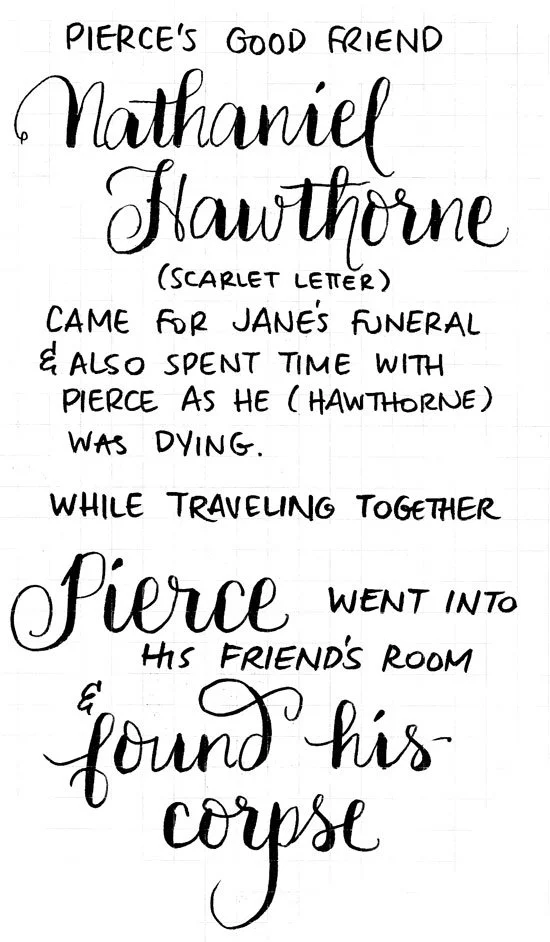



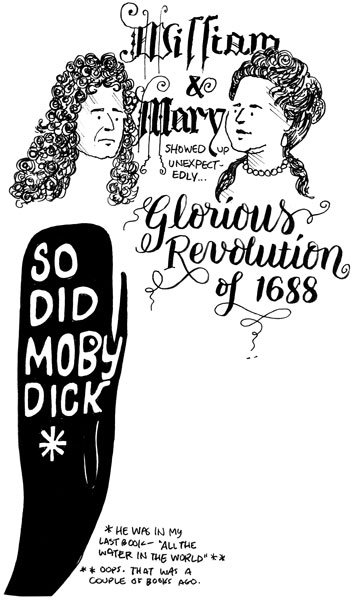



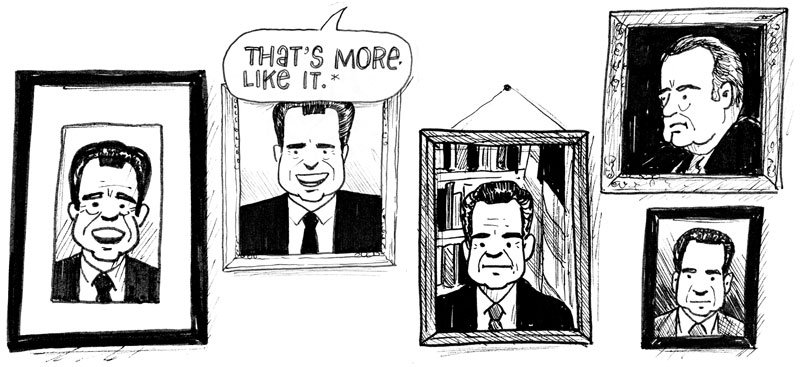

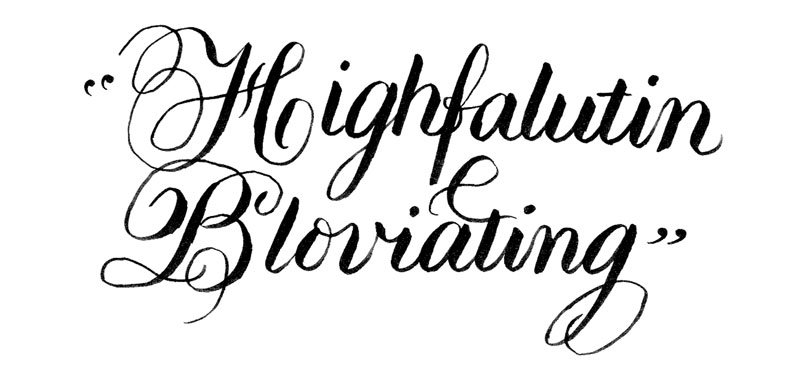
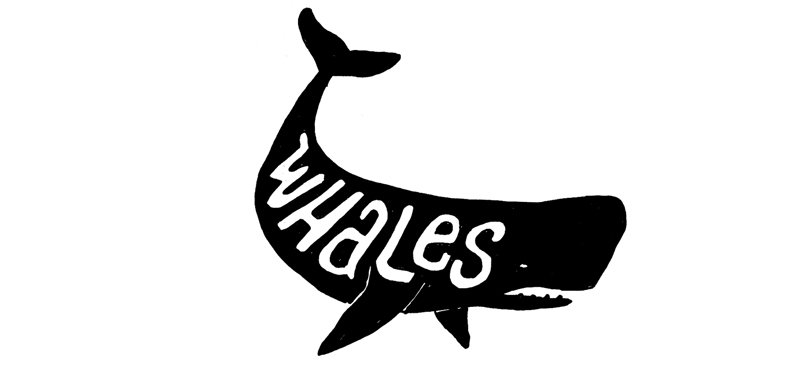
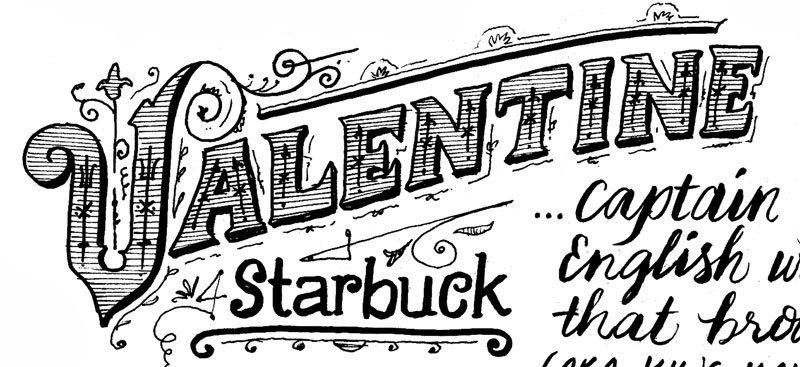
Nah. Not yet.